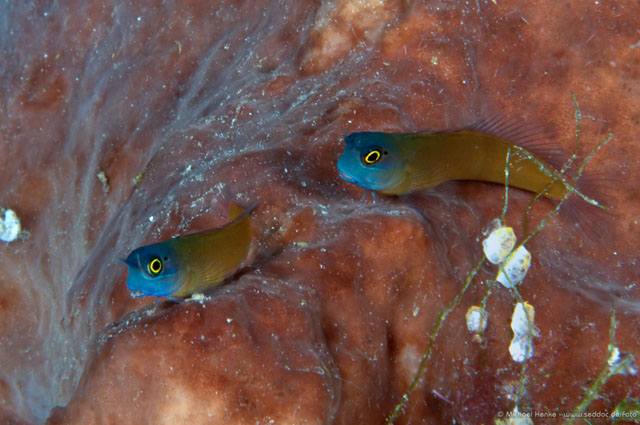| Blenniidae (Combtooth blennies), subfamily: Salariinae |
| 5.5 cm TL (male/unsexed) |
|
demersal; marine; depth range 4 - 20 m |
| Western Central Pacific: Indonesia. |
|
Diagnosis: a black outer ring surrounding a bright yellow ring in iris of the eye; faint to bright white stripe originating on snout below ventro-anterior margin of orbit and continuing posteriorly along ventral margin of orbit to preopercular series of pores, ending or continuing much diminished in intensity to posterior margin of opercle; pale-margined, dark spot, smaller than pupil of eye, present on post-orbital margin at about 2 o'clock position. Body more or less uniformly olive-brown or with the indications of fine, greenish yellow, stripe-like area along dorsal body contour below dorsal fin, paralleled ventrally by broad, olive-brown area grading ventrally and narrowly to greenish yellow at body midline, then abruptly whitish below (Ref. 55736). |
| Adults are found in clear coastal to outer reef habitats to about 20 m depth (Ref. 48636), perched on live corals in sheltered reefs (Ref. 90102). Oviparous. Eggs are demersal and adhesive (Ref. 205), and are attached to the substrate via a filamentous, adhesive pad or pedestal (Ref. 94114). Larvae are planktonic, often found in shallow, coastal waters (Ref. 94114). |
|
Least Concern (LC); Date assessed: 25 March 2009 Ref. (130435)
|
| harmless |
Source and more info: www.fishbase.org. For personal, classroom, and other internal use only. Not for publication.
